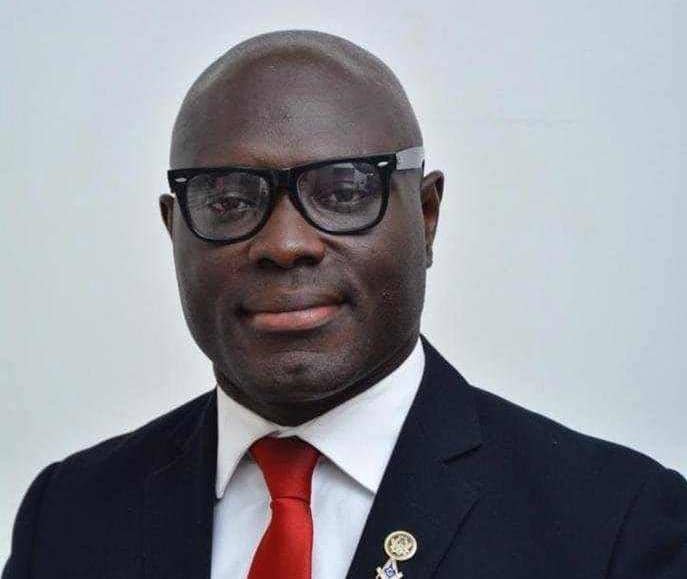
Dr Matthew Opoku Prempeh, Minister of Education
By Opare Gyan
The immediate past Minister of Education was the only minister in recent times to have steered affairs without workers in the education sector embarking on strikes.
It was not any kind of magic that did the trick, though; but the ability of the minister to consult, collaborate and engage with various unions within the education sector to know their problems and also relay to the unions what government can and cannot do at various times.
It was, therefore, not surprising that the University Teachers Association of Ghana (UTAG) found it important to honour Dr Prempeh at its congress held at the Kwame Nkrumah University of Science and Technology (KNUST) in Kumasi, in 2019.
The honour was in recognition of the then minister’s hard work and his ways of improving standards of education at the pre-tertiary and higher education levels. At the congress, the minister was praised for establishing a good working relationship with the UTAG.
Other unions were every time ready to jaw-jaw with the minister, who was ready to listen to them and fashion out ways to solve various problems that the workers of the education sector face.
Dr Prempeh was able to diffuse politics associated with various teacher unions, as he made them aware that though politics was good, it was a terrible thing when it was having far-reaching ramifications on the country’s education.
Dr Prempeh and education in COVID-19 era
Just like other countries, Ghana was also hit by the dreaded bug, COVID-19 and the education sector was not spared.
The minister being a Medical Doctor, played a crucial role in advising the government in taking critical decision bordering on the education sector in the COVID-19 era; and that greatly helped various education institutions from having incidences of the virus.
When the government closed down schools, it was through the instrumentality of the then minister Prempeh that virtual means of learning was designed and developed for all levels of the educational ladder.
It was through the solid and pragmatic measures that were adopted and rolled out that helped majority of tertiary students to complete their studies and complete schools.
At the lower levels, the Ministry of Education through the GES developed number of strategies toward tutorials on radio, television and other social media platforms to help students and pupils who were at home, to leverage the period of closure of schools due to COVID-19.
The strategies and modalities adopted by the education ministry, therefore, helped the finalists at the JHS and SHS levels as well as keeping others in the learning mood.
Teachers also benefitted from the closure of schools in no small way, as most of them were compelled to be abreast with how to teach, using virtual means through information technology.
Numerous achievements
Under Dr Prempeh, as the Minister of Education, Colleges of Education now run 4-Year Bachelor of Education programmes. Teacher trainees will now graduate with Bachelor’s degrees, and will not need to take study leave to go back to acquire the degree.
The national audit of skills has been completed by the Council for Technical and Vocational Education Training (COTVET).
E-Learning portal developed (www.icampusgh.com) and includes all SHS 1-3 core subjects. The website is live.
Teacher recruitment since 2017 is now done at regional levels: Documentation done at District and Regional levels.
Restore Teacher Allowances:
Restored allowances were also paid to Arabic/Islamic instructors under the national volunteer service programme.
Restore book and research allowances for lecturers were catered for. They have not only been restored, they have been increased by 200%.
The regime also introduced History of Ghana as a subject for primary schools in the Curriculum which has been approved by Cabinet. Over 180 Master Trainers, 3,900 District level Trainers, and 152,000 teachers have been trained for this purpose.
In other achievements it Integrate school sports as part of school activities: Free PE kits are being provided to students under the Free SHS programme.
It also abolished the payment of utility bills by students; and the Tertiary Education Policy also abolished the payment of utility bills in tertiary Institutions.
The era also redefined basic education from Kindergarten to include SHS, covering vocational, agricultural and technical schools.
The current enrolment stands at 1,199,750 students from 2017 to 2019. This is not limited to arts, business, and science subjects: it also covers Technical, Vocational and Education Training (TVET), in essence, the initiative is “Free SHS and TVET ” 52.1 per cent of all these students are male and 47.9 per cent female.
Government also absorbed BECE examination fees in 2018: WASSCE examination fees absorbed in 2020.
The student loan amount has been increased by 50 per cent and ranges between GHc1, 500 and GHc3, 000.
Funding was secured for two foundries, and sod has been cut for the commencement of a machine tool centre to be constructed in Kumasi.







